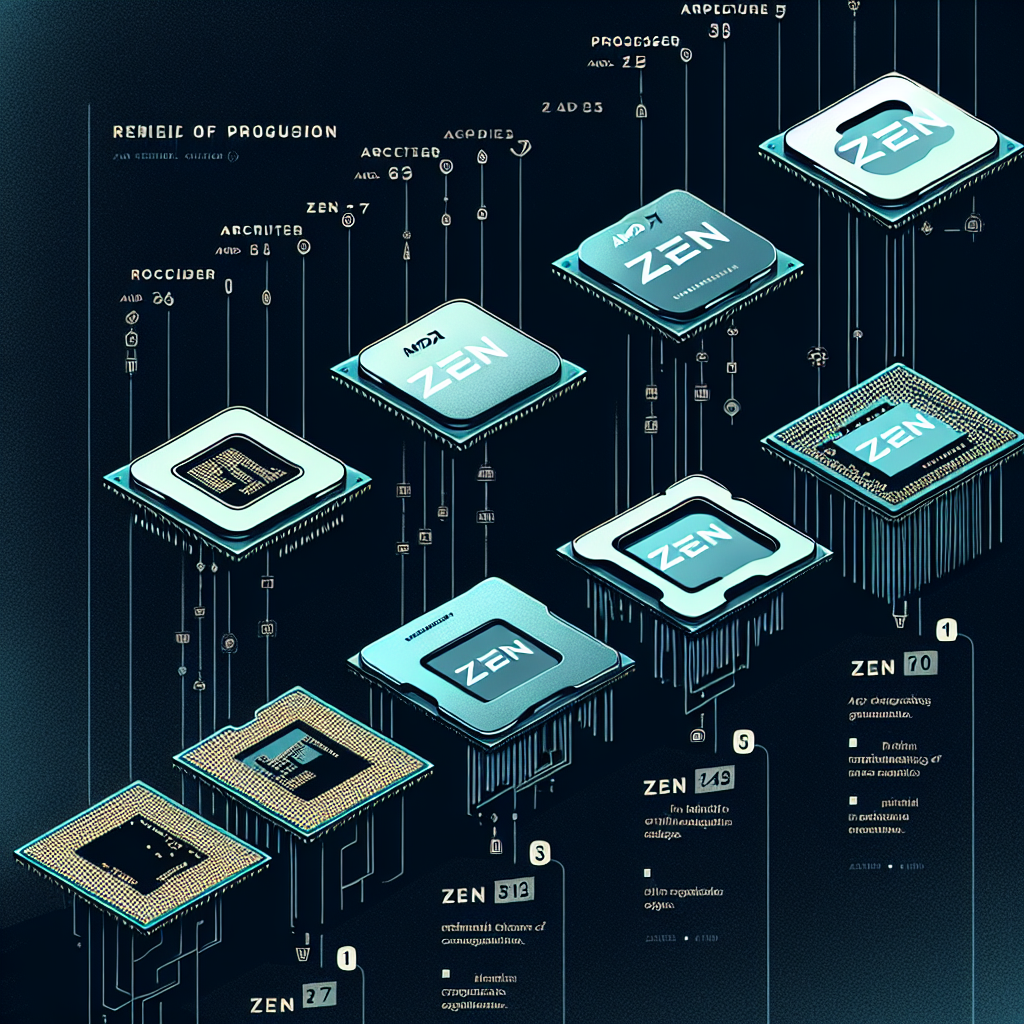Your cart is currently empty!
The Evolution of AMD Ryzen 7: From Zen to Zen 3

AMD has been making waves in the processor market with its Ryzen 7 lineup, which has seen significant improvements over the years. From the initial release of Zen architecture to the latest Zen 3 architecture, the evolution of AMD Ryzen 7 has been nothing short of impressive.
The first generation of AMD Ryzen 7 processors was based on the Zen architecture, which was a significant leap forward for the company in terms of performance and efficiency. The Zen architecture featured a new design that allowed for better multi-threading capabilities, improved memory latency, and increased overall performance compared to previous AMD processors.
With the release of the Ryzen 7 1000 series, AMD was able to compete with Intel’s high-end processors in terms of performance and price. The Ryzen 7 1800X, in particular, was praised for its excellent multi-threaded performance and competitive pricing, making it a popular choice among enthusiasts and professionals.
As AMD continued to refine its Zen architecture, the Ryzen 7 lineup saw further improvements with the release of the Ryzen 7 2000 series. These processors featured higher clock speeds, improved memory compatibility, and better overall performance compared to their predecessors. The Ryzen 7 2700X, in particular, was lauded for its excellent gaming performance and multitasking capabilities.
The most recent iteration of the Ryzen 7 lineup is based on the Zen 2 architecture, which introduced significant improvements in terms of performance and efficiency. The Ryzen 7 3000 series processors featured higher core counts, improved IPC (instructions per clock), and better power efficiency compared to previous generations. The Ryzen 7 3700X and 3800X, in particular, were praised for their excellent gaming performance and multitasking capabilities.
And now, AMD has taken the Ryzen 7 lineup to the next level with the release of the Ryzen 5000 series processors based on the Zen 3 architecture. These processors feature even higher IPC, improved power efficiency, and better overall performance compared to their predecessors. The Ryzen 7 5800X and 5900X have been met with critical acclaim for their outstanding gaming performance and multitasking capabilities, solidifying AMD’s position as a serious competitor to Intel in the high-end processor market.
Overall, the evolution of AMD Ryzen 7 processors from Zen to Zen 3 has been a remarkable journey, with each iteration pushing the boundaries of performance and efficiency. With the latest Zen 3 architecture, AMD has solidified its position as a top contender in the processor market, offering high-performance processors at competitive prices. It will be exciting to see what the future holds for AMD Ryzen 7 processors as the company continues to innovate and push the boundaries of what is possible in the world of computing.

Leave a Reply